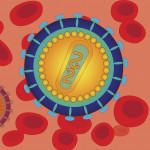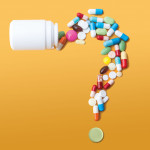An experimental HIV vaccine failed to delay viral rebound after a small number of people with HIV were taken off their antiretroviral (ARV) treatment in a recent trial. Nevertheless, the study provided researchers with clues to help in their long-term quest to develop a means of prompting a state of post-ARV-treatment viral remission in HIV-positive individuals.
Publishing their findings in Science Translational Medicine, researchers conducted a randomized, double-blind placebo-controlled clinical trial including people with HIV who started ARVs shortly after contracting the virus.
Fourteen participants were randomized to receive the therapeutic vaccine while 15 others received saline placebo injections. All participants received four injections over a 36-week period during which they remained on their ARVs.
All participants then entered a 16-week analytical treatment interruption during which they stopped taking their ARVs. There was no difference between the two study arms in the time before participants’ virus rebounded, once again becoming detectable.
The vaccine generated minimal activation of CD4 and CD8 cells and did not affect the size of the viral reservoir. It was, however, well tolerated, and the participants experienced no serious adverse health events.
Curiously, four (26 percent) of the participants in the placebo arm experienced sustained suppression of HIV—a viral load below 400—during the treatment interruption. This is a rate of spontaneous suppression of HIV higher than would be expected in the general population, given the small percentage of individuals with HIV who are “elite controllers” (individuals who can suppress HIV over long periods without the need for daily ARVs).
To read a POZ feature article about the ethics of taking people of ARVs in cure studies, click here.
To read a press release about the study, click here.
To read the study abstract, click here.







Comments
Comments